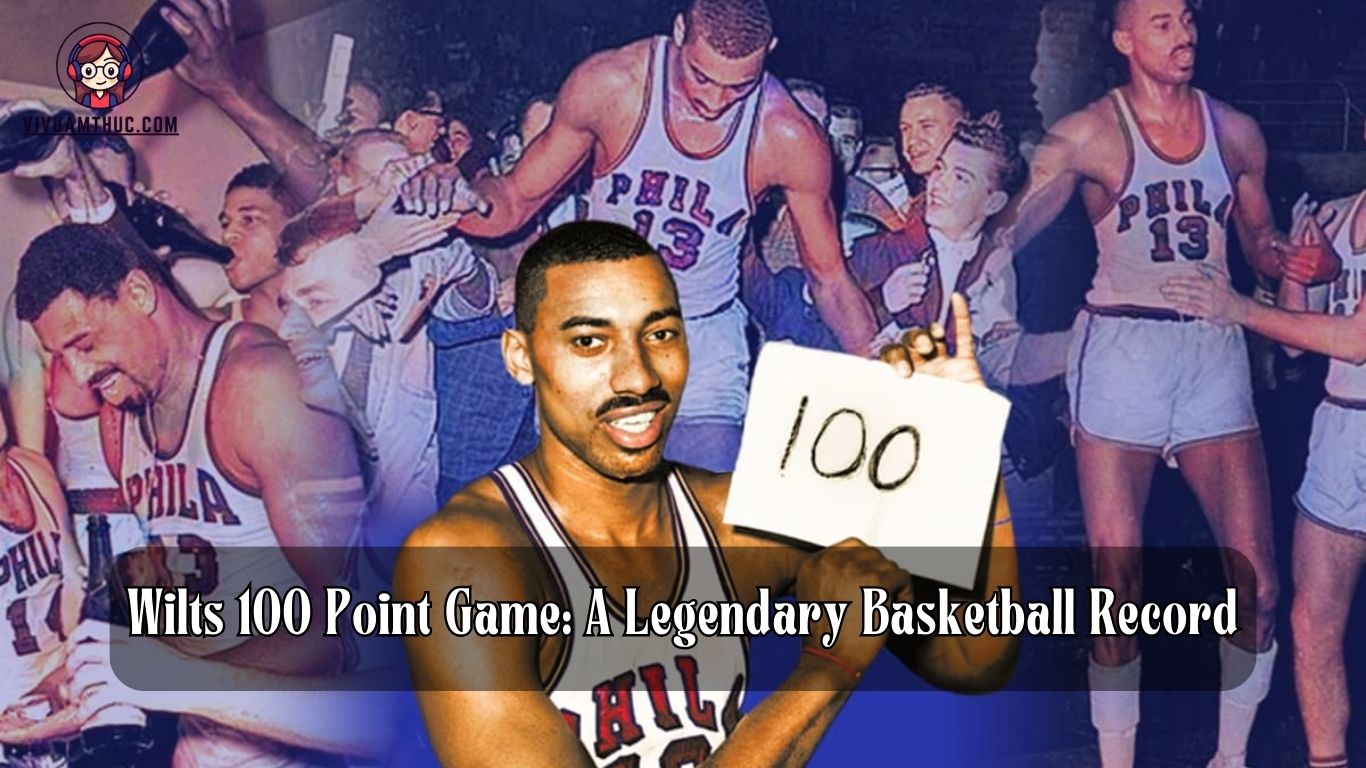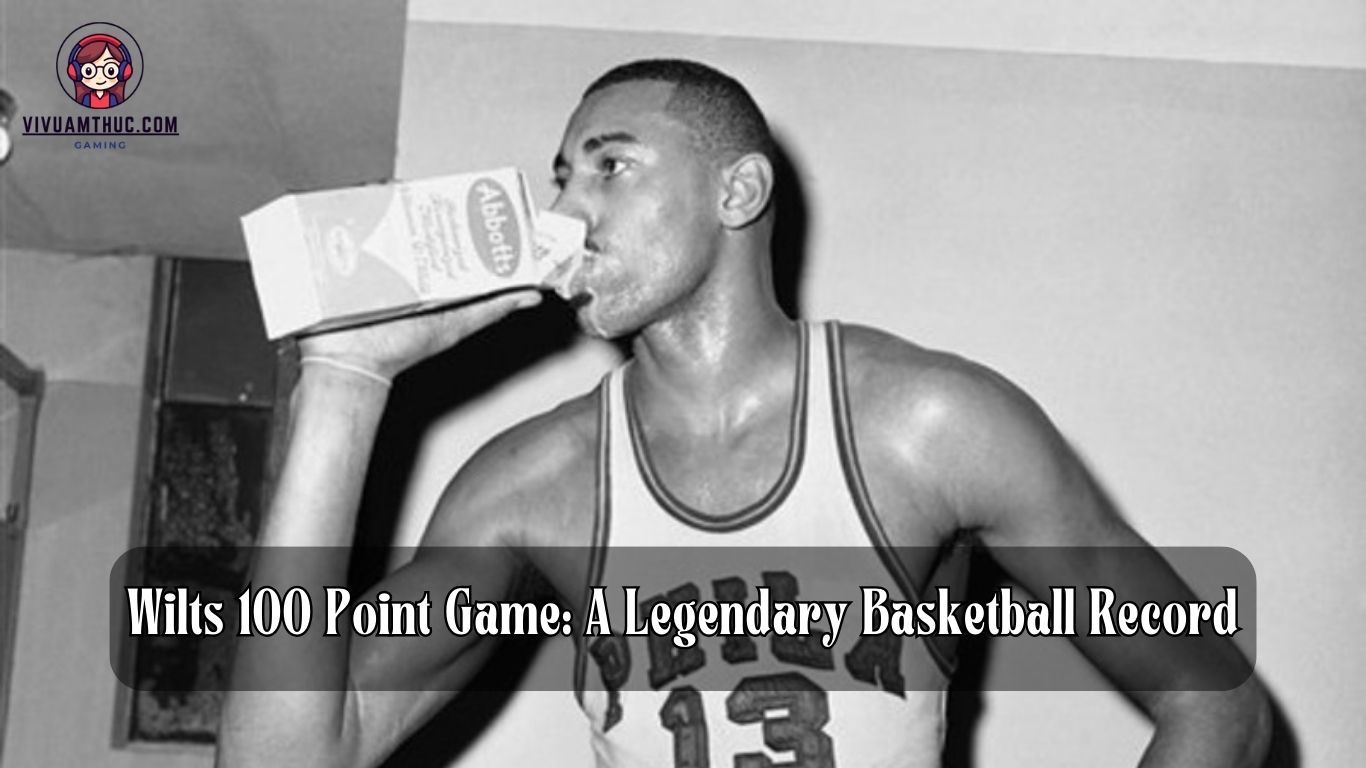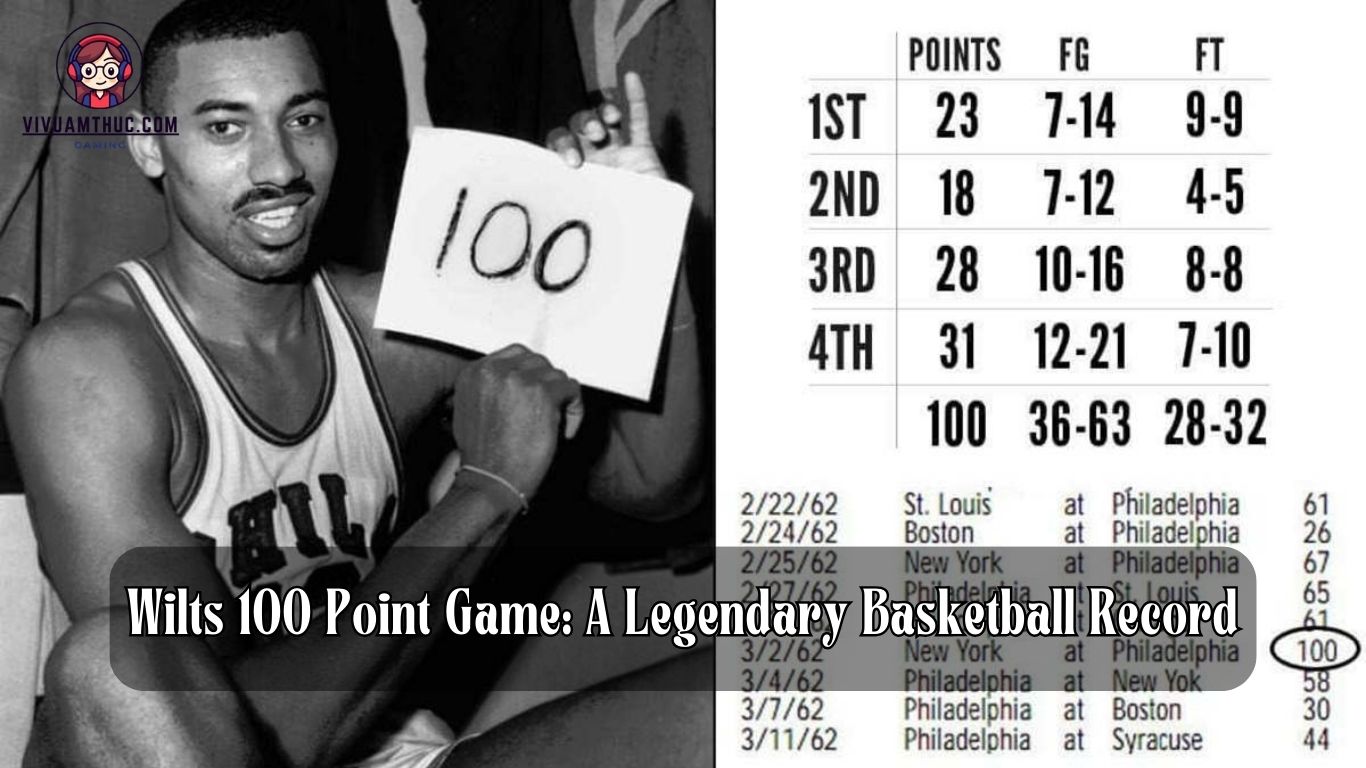Wilt Chamberlain’s 100-point game, achieved on March 2, 1962, remains one of the most celebrated moments in basketball history. This performance redefined the sport, showcasing Chamberlain’s unparalleled skill and competitive spirit. In this article, we’ll explore the context, the game, and its enduring legacy.
The Context Behind Wilt’s Unprecedented Achievement
Chamberlain’s Dominant Season
During the 1961-62 NBA season, Wilt Chamberlain was unstoppable, averaging 50.4 points per game—a record that still stands. His dominance on the court was not just about scoring; it was about setting a standard for athletic excellence.
The historic game took place in the Hershey Sports Arena in Hershey, Pennsylvania. Unlike the grand arenas of today, the venue was modest, with only 4,124 fans witnessing history firsthand.
Wilt’s Competitors
The Philadelphia Warriors faced the New York Knicks, a team that struggled defensively against Chamberlain’s sheer size and skill. The Knicks were also shorthanded, which further highlighted Wilt’s domination that night.

How Wilt Scored 100 Points
An Offensive Clinic
Chamberlain scored 36 of 63 field goals, showcasing his incredible accuracy and relentless offensive style. This included 28 of 32 successful free throws—a remarkable achievement given his usual struggles at the foul line.
The Strategy Behind the Feat
The Philadelphia Warriors adopted a game plan designed to maximize Chamberlain’s scoring. His teammates consistently fed him the ball, ensuring he remained the focal point of their offense.
Quarter-by-Quarter Breakdown
- First Quarter: Chamberlain scored 23 points, setting the tone for the game.
- Second Quarter: He added 18 more points, bringing his halftime total to 41.
- Third Quarter: By scoring 28 points, Chamberlain reached 69 heading into the final quarter.
- Fourth Quarter: The team rallied around him, enabling him to cross the 100-point mark with just seconds left.
The Impact of Wilt’s Record-Breaking Game
Changing the Game
Chamberlain’s performance forced teams to rethink their defensive strategies. The league adjusted rules and tactics to prevent such dominance in the future, such as widening the key and emphasizing team play over individual scoring.
An Unbreakable Record
Despite other notable scoring feats—like Kobe Bryant’s 81-point game in 2006—Chamberlain’s record remains untouched. His combination of endurance, skill, and opportunity was unique, making this feat nearly impossible to replicate.
Reactions to the 100-Point Game
Fans and Media
The event, though underreported at the time, grew into legend as basketball’s popularity soared in later decades. Stories of that night have become part of NBA folklore.
Wilt’s Legacy
Chamberlain himself was proud of the achievement but often downplayed it, emphasizing the importance of team success over individual accolades.

Frequently Asked Questions
How did Wilt Chamberlain score so many points?
Chamberlain’s size, athleticism, and the team’s offensive focus on him allowed him to dominate. His exceptional free-throw performance was also critical.
Has anyone come close to breaking the record?
Kobe Bryant’s 81-point game in 2006 is the closest anyone has come. However, the modern game’s focus on team play makes it unlikely that anyone will surpass Chamberlain’s record.
Why is this game so significant?
Wilt’s 100-point game represents the pinnacle of individual achievement in basketball, highlighting what one player can accomplish in ideal circumstances.
Lessons from Wilt’s Performance
Dedication and Preparation
Wilt’s ability to perform at such a high level came from rigorous training and preparation.
Teamwork Makes History
Though Chamberlain’s name is the one celebrated, his teammates’ efforts were crucial in setting up the opportunities for him to succeed.
Wilt Chamberlain’s legendary 100-point game on March 2, 1962, remains the most iconic individual performance in basketball history. This unprecedented achievement not only highlighted Chamberlain’s extraordinary skills but also influenced how the game evolved in subsequent decades. In this article, we’ll examine the context of this historic moment, the details of the game, its far-reaching implications, and why Wilt’s record remains a timeless benchmark in sports.
Setting the Stage: Wilt Chamberlain and the 1961-62 NBA Season
Dominance Redefined
Wilt Chamberlain, playing for the Philadelphia Warriors, was a basketball phenomenon. His 1961-62 season saw him average 50.4 points per game, a feat unmatched to this day. Known for his towering height and unmatched athleticism, Wilt redefined what a basketball player could achieve.
The Venue
The historic game was held at the Hershey Sports Arena in Pennsylvania, far from the large urban arenas of today. The modest setting belied the gravity of what was about to transpire, with just over 4,000 fans in attendance.
Opposing Team: The New York Knicks
The New York Knicks were underdogs going into the game, missing key players and lacking the defensive firepower to counter Chamberlain’s dominance. This mismatch set the stage for Chamberlain’s record-breaking night.
The Game: A Detailed Breakdown
A Scoring Masterclass
Wilt Chamberlain’s 100-point game was a result of both extraordinary skill and a strategic focus on feeding him the ball. He made 36 of 63 field goal attempts and an uncharacteristically high 28 of 32 free throws.
Quarter-by-Quarter Performance
- First Quarter: Chamberlain scored 23 points, quickly establishing dominance.
- Second Quarter: With 18 points, his halftime total rose to 41.
- Third Quarter: Scoring an additional 28 points, Wilt reached 69 points.
- Fourth Quarter: The Warriors prioritized getting Chamberlain to 100, culminating in his final points with just seconds remaining.
Strategic Team Play
The Philadelphia Warriors’ game plan revolved around maximizing Wilt’s scoring opportunities. His teammates, aware of the significance of the moment, worked tirelessly to ensure Chamberlain reached his historic milestone.
Legacy of the 100-Point Game
An Unbreakable Record
While other players have come close—like Kobe Bryant’s 81-point game—no one has surpassed Wilt’s 100 points. The conditions and Chamberlain’s unique abilities make this record one of sports’ most enduring achievements.
Influence on Basketball
Wilt’s game led to changes in basketball strategies and rules, such as widening the key and altering defensive techniques. His dominance forced the NBA to evolve to maintain competitive balance.
Media and Cultural Impact
Though the game wasn’t televised, its legend grew over time. Stories of Chamberlain’s feat became part of NBA lore, solidifying his status as one of the greatest players in history.
Frequently Asked Questions
How did Wilt Chamberlain achieve 100 points?
Wilt’s scoring prowess, combined with the team’s focus on feeding him the ball, allowed him to dominate the game. His unusually accurate free-throw shooting was also a critical factor.
Has anyone come close to breaking the record?
The closest effort was Kobe Bryant’s 81-point game in 2006, but Wilt’s 100-point record still stands as the gold standard for individual scoring performances.
Why is the 100-point game so significant?
The game symbolizes the pinnacle of individual athletic achievement in basketball, showcasing what’s possible under extraordinary circumstances.
The Broader Impact of Wilt’s Achievement
Changing Perceptions of Athleticism
Chamberlain’s performance challenged the limits of what an athlete could achieve, inspiring future generations of basketball players to push their boundaries.
Contribution to NBA Popularity
Wilt’s achievements, including the 100-point game, played a significant role in popularizing the NBA and setting the stage for its growth into a global phenomenon.
Conclusion: Wilt’s Legacy Lives On
Wilt Chamberlain’s 100-point game isn’t just a basketball milestone; it’s a cultural touchstone. Decades later, fans, players, and analysts still marvel at the sheer magnitude of his accomplishment. It’s a reminder of the heights athletes can reach through dedication and teamwork.
For more insights into iconic sports moments and beyond, visit Vi Vu Ẩm Thực.
